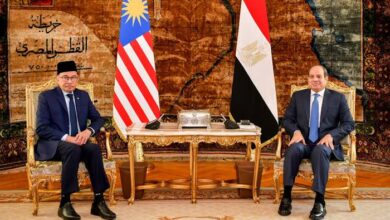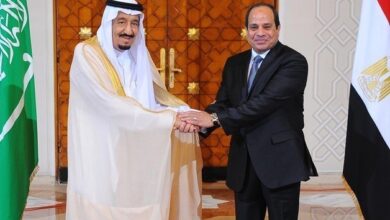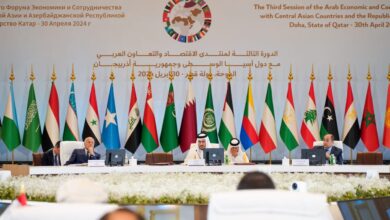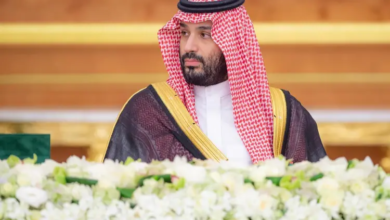“4th Pak-Africa Trade Development Conference”, Single Country Exhibition Cairo 2024

Ahmed Mostafa
The Pak Africa Trade Development Conference, set to take place in 2024, is a week-long event aimed at promoting trade and investment between Pakistan and Africa. The conference, held in Egypt, will feature a Single Country Exhibition that showcases the economic potential and opportunities for collaboration between the two regions. The conference aims to strengthen ties between Pakistan and Africa by facilitating dialogue, knowledge-sharing, and networking. Pakistan’s growing population and well-established manufacturing and agricultural sector make it a promising market for African producers and investors. African countries, with abundant natural resources, a young and dynamic population, and a growing consumer base, are ideal partners for Pakistani businesses looking to expand their markets.
The conference will include panel discussions, keynote speeches, and interactive sessions on topics such as investment opportunities, trade policies, and best practices for doing business in both regions. The Single Country Exhibition will showcase Pakistan’s diverse industries, while also highlighting the unique products and services of selected African countries. Networking events, B2B meetings, and matchmaking sessions will allow participants to connect and forge new business partnerships.
The conference also aims to strengthen diplomatic relations between Pakistan and Africa by bringing government officials together to discuss political and socio-economic issues. This could lead to the signing of new trade agreements and the removal of trade barriers, further facilitating trade and investment between the two regions.
Pros and Cons of Economic Cooperation between Egypt and Pakistan
Economic cooperation between Egypt and Pakistan is a crucial tool for fostering integration, development, and mutual growth. This essay examines the advantages and disadvantages of economic cooperation between the two countries, focusing on trade expansion, investment opportunities, cultural exchanges, and technological transfer.
Trade expansion is a primary advantage of economic cooperation between Egypt and Pakistan, as both countries possess unique resources and products that can be mutually beneficial. This partnership would strengthen bilateral trade and promote regional integration. Investment opportunities can be facilitated through Pakistan’s textile industry and Egypt’s expanding energy and construction sectors, driving infrastructure growth, creating job opportunities, and enhancing industrial development.
Cultural exchanges can also be fostered through tourism, educational exchanges, and collaborations in various domains. Both countries have the potential to learn from each other, promote cultural heritage, and foster a sense of cooperation and harmony.
However, political instability can deter potential investors and hamper economic cooperation. Addressing political instability concerns and establishing a stable framework for long-term cooperation is crucial for both countries.
Technological transfer can also present challenges in harmonizing differences in technological capabilities between Egypt and Pakistan. Bridging the technological divide between the two countries can present obstacles in establishing a common ground for effective collaboration in sectors like information technology, research and development, and innovation.
Egypt and Pakistan suffer from a shortage in US$, how can we fix this matter together?
Egypt and Pakistan have been grappling with a US dollar shortage, a significant concern for their economies. The shortage has led to a depreciating currency, rising inflation, and a decrease in foreign investments. To address this issue, both countries must acknowledge the root causes, such as trade deficits, declines in exports, and political instability.
One potential solution is to increase trade between Egypt and Pakistan, leveraging their strong potential in sectors like textiles, agriculture, and tourism. This would increase the inflow of US dollars and reduce the trade deficit. Additionally, both countries should focus on increasing foreign investments, given their vast markets and young populations. By creating a favorable environment for foreign investors and providing incentives, both countries can attract more investment and increase the inflow of US dollars.
Diversifying exports is also crucial, as both countries heavily rely on a few key exports, making them vulnerable to external shocks. Diversifying exports can reduce dependence on a single industry and increase revenue in US dollars. Cooperation between central banks can also help address this issue by negotiating favorable exchange rates and developing currency stabilization policies. This will minimize the impact of external factors on currency value and contribute to the stability of their economies.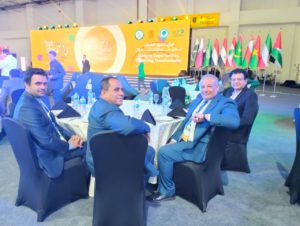
How can cutting-edge technology increase the cooperation between Egypt and Pakistan?
Digitization and AI have become crucial drivers in the global economy, transforming various industries and businesses. The cooperation between Egypt and Pakistan can greatly benefit from these advancements, leading to economic growth, social development, and overall progress.
One way digitization and AI can enhance cooperation is through increased connectivity. Improved internet infrastructure and connectivity allow businesses in both countries to communicate, collaborate, and share resources, leading to increased trade and investment. AI-powered translation tools can help overcome language barriers, enabling smoother communication and understanding between the two nations.
In the education sector, e-learning platforms and digital classrooms can facilitate cross-cultural understanding and access to quality education. AI-powered supply chain management systems can streamline operations, resulting in increased trade and investment. Blockchain can circumvent banking barriers if used properly between the two countries.
Digital platforms and AI-powered virtual reality experiences can promote cultural exchange and tourism between Egypt and Pakistan. By embracing and utilizing the latest advancements in technology, both countries can bridge the geographic and cultural divide and form a solid foundation for cooperation. This can be achieved through technology transfers, joint research and development projects, and increasing collaborations between tech companies.
Startups have emerged as a catalyst for change and disruption in traditional industries, and encouraging and supporting their growth can foster collaboration and exchange of ideas and innovations. Investments in infrastructure and digital literacy can create a conducive environment for tech startups to flourish and collaborate, boosting trade investment and cultural exchange.
Innovative technologies in sectors such as agriculture, healthcare, and education can also strengthen the bilateral relationship between Egypt and Pakistan. Precision agriculture technologies can improve crop yield and productivity, while exchanging and sharing of best practices can improve healthcare and education services, ultimately benefiting both nations.
Establishing a free zone and logistical area in Port Said for Pakistan will stimulate trade with Egypt and Africa
The establishment of a free zone and logistical area in Port Said, Pakistan, could significantly boost trade with Africa. This would provide a strategic location for Pakistani businesses to access the underserved African market, reducing costs and making products more competitive. The logistical area would also serve as a centralized hub for transportation and distribution of goods, improving trade relations by reducing shipping costs and delivery times. This would lead to a larger customer base in Africa, increasing trade volume. The area would also offer storage facilities and infrastructure to facilitate the smooth flow of goods.
The free zone would also attract foreign direct investment from African countries, offering incentives like tax exemptions, duty-free imports, and streamlined bureaucratic processes. This would attract African companies looking to expand their operations, creating jobs and economic growth in Port Said. In the long run, the free zone and logistical area would not only stimulate trade but also foster stronger economic and diplomatic ties between the two regions. It would open up opportunities for partnerships, joint ventures, and knowledge sharing, leading to overall economic development for both sides. This move would also reinforce Pakistan’s position as a key player in the global trade arena, showcasing its potential as a reliable trade partner.
Erasing customs will increase mutual trade between Egypt and Pakistan
The decision to eliminate customs between Egypt and Pakistan has the potential to significantly improve bilateral trade relations. The elimination of tariffs, taxes, and duties on imported goods will create a more conducive environment for trade, benefiting both economies and fostering closer ties and mutual trust. Historically, trade between Egypt and Pakistan has been relatively low, with both countries primarily exporting agricultural products. However, the removal of barriers will increase the variety and volume of goods being traded.
One key advantage of this new trade agreement is the potential for increased trade in the textile industry. Pakistan, a major exporter of textiles, will have access to high-quality fabrics and finished products at a more affordable price, benefiting the textile industry and other sectors like fashion and retail. Additionally, the elimination of customs will lead to an increase in exports of fruits, vegetables, and other food products to Pakistan, contributing to a more balanced trade relationship.
Reducing trade barriers will attract foreign investors, leading to job creation and economic growth in both countries. This trade agreement will also enhance cooperation in areas such as technology, infrastructure, and energy, promoting knowledge and resource sharing for overall development. In addition to economic benefits, erasing customs will have a positive impact on the people of both countries, as increased trade will provide a wider range of products at lower costs, improving the standard of living and promoting cultural exchange.
In conclusion, The Pak Africa Trade Development Conference and Single Country Exhibition in Egypt 2024 offer a platform for strengthening ties between Pakistan and Africa. The event aims to explore new trade and investment opportunities, promote economic growth, and build a stronger foundation for future partnerships. However, it is crucial to address potential cons such as economic disparities, political instability, and technological transfer challenges to ensure a balanced and fruitful relationship. Both Egypt and Pakistan can maximize the advantages of their economic cooperation through open dialogue, inclusive policies, and effective frameworks. Addressing the shared concern of the shortage of US dollars requires joint efforts and cooperation to find a solution. By implementing suggested solutions, both countries can reduce their reliance on US dollars and achieve sustainable economic growth.
Digitization and AI have the potential to enhance cooperation between Egypt and Pakistan by overcoming geographical barriers, facilitating knowledge exchange, strengthening economic ties, and promoting cross-cultural understanding. Both countries must embrace digitization and collaborate to harness their full potential for mutual growth and development. Establishing a free zone and logistical area in Port Said for Pakistan holds immense potential in stimulating trade with Africa. Policymakers should actively support and promote this initiative to reap its full benefits. Lastly, the decision to erase customs between Egypt and Pakistan will positively impact economic and social ties, increasing trade, job opportunities, and foreign investment. This is a step in the right direction towards building a stronger and more prosperous relationship and demonstrating the commitment of both countries towards promoting global trade and cooperation.

